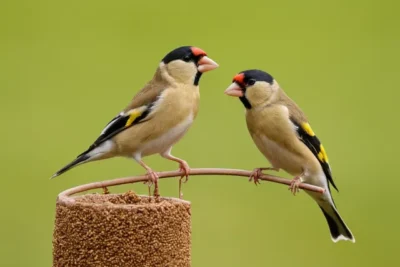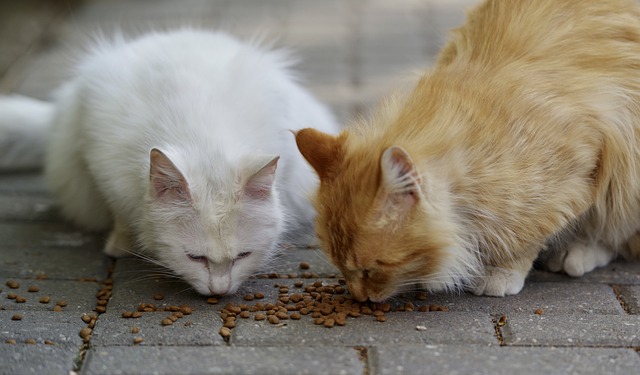



Cats are obligate carnivores, which means that their bodies are designed to thrive on a diet that consists primarily of meat. While commercial cat food can provide the necessary nutrients for your feline friend, many pet owners are opting for a more natural approach to their cat's diet. In this article, we will explore the best natural food choices for cats to ensure they have a healthy and balanced diet.
Raw meat is one of the best natural food choices for cats. It closely resembles the diet of their wild ancestors and provides essential nutrients such as protein, vitamins, and minerals. Raw meat can include chicken, turkey, beef, or lamb. It is important to source high-quality, human-grade meat and handle it safely to avoid any potential bacterial contamination. Some cat owners choose to feed their cats a raw meat diet exclusively, while others incorporate it as part of a balanced diet.
If you are uncomfortable feeding your cat raw meat, cooked meat can also be a good option. Cooked chicken, turkey, or lean beef can provide your cat with the necessary protein and nutrients. However, it is important to avoid seasoning the meat with any spices or additives, as they can be harmful to cats. Additionally, make sure the meat is thoroughly cooked to eliminate any potential bacteria.
Fish is another natural food choice for cats, but it should be fed in moderation. While fish is a good source of protein and omega-3 fatty acids, it can also contain high levels of mercury and other contaminants. It is best to choose fish that is low in mercury, such as salmon or sardines, and feed it as an occasional treat rather than a staple in your cat's diet. Additionally, make sure the fish is cooked thoroughly to eliminate any potential parasites.
Eggs are a great source of protein and can be a healthy addition to your cat's diet. They are also rich in essential amino acids and vitamins. You can feed your cat cooked eggs, such as scrambled or hard-boiled, but avoid adding any seasoning or oil. Some cat owners also choose to feed their cats raw eggs, but it is important to note that raw eggs can carry the risk of salmonella. If you decide to feed your cat raw eggs, make sure they are sourced from a reputable source.
While cats are primarily carnivores, some fruits and vegetables can be beneficial for their overall health. They can provide additional vitamins, minerals, and fiber. However, it is important to note that cats have specific dietary requirements, and not all fruits and vegetables are safe for them to consume. Some safe options include cooked pumpkin, steamed carrots, and small amounts of berries. Always consult with your veterinarian before introducing any new fruits or vegetables into your cat's diet.
Dairy products, such as milk and cheese, are often enjoyed by cats. However, it is important to note that many cats are lactose intolerant and cannot properly digest lactose, the sugar found in milk. Feeding your cat dairy products can lead to digestive upset, including diarrhea and vomiting. If you choose to feed your cat dairy, opt for lactose-free options or small amounts of plain yogurt.
While a natural diet can provide most of the necessary nutrients for your cat, some cats may benefit from additional supplements. Omega-3 fatty acids, such as fish oil, can help support a healthy coat and skin. Probiotics can promote a healthy gut and aid in digestion. However, it is important to consult with your veterinarian before adding any supplements to your cat's diet, as they can interact with medications or have adverse effects.
If you have the time and resources, you can consider making homemade cat food for your feline companion. This allows you to have full control over the ingredients and ensure that your cat is receiving a balanced and nutritious diet. Homemade cat food typically consists of a combination of raw or cooked meat, organs, and bones, along with other necessary nutrients. It is important to work with a veterinary nutritionist to create a recipe that meets your cat's specific dietary needs.
If making homemade cat food is not feasible for you, there are many commercial natural cat food options available on the market. These foods are formulated to provide a balanced diet for cats and often contain high-quality ingredients. Look for cat food that lists real meat as the first ingredient and does not contain any artificial additives or fillers. It is important to read the labels and choose a brand that meets the nutritional needs of your cat.
If you decide to transition your cat to a natural diet, it is important to do so gradually. Sudden changes in diet can cause digestive upset and may be met with resistance from your cat. Start by introducing small amounts of the new food alongside their regular diet and gradually increase the proportion over time. Monitor your cat's health and behavior during the transition and consult with your veterinarian if you have any concerns.
In conclusion, the best natural food for cats includes raw or cooked meat, fish in moderation, eggs, safe fruits and vegetables, and limited dairy products. Supplements can also be beneficial, but it is important to consult with your veterinarian before adding them to your cat's diet. Whether you choose to make homemade cat food or opt for commercial natural cat food, the key is to provide a balanced and nutritious diet that meets your cat's specific needs. Remember to always consult with your veterinarian before making any significant changes to your cat's diet.
Related posts